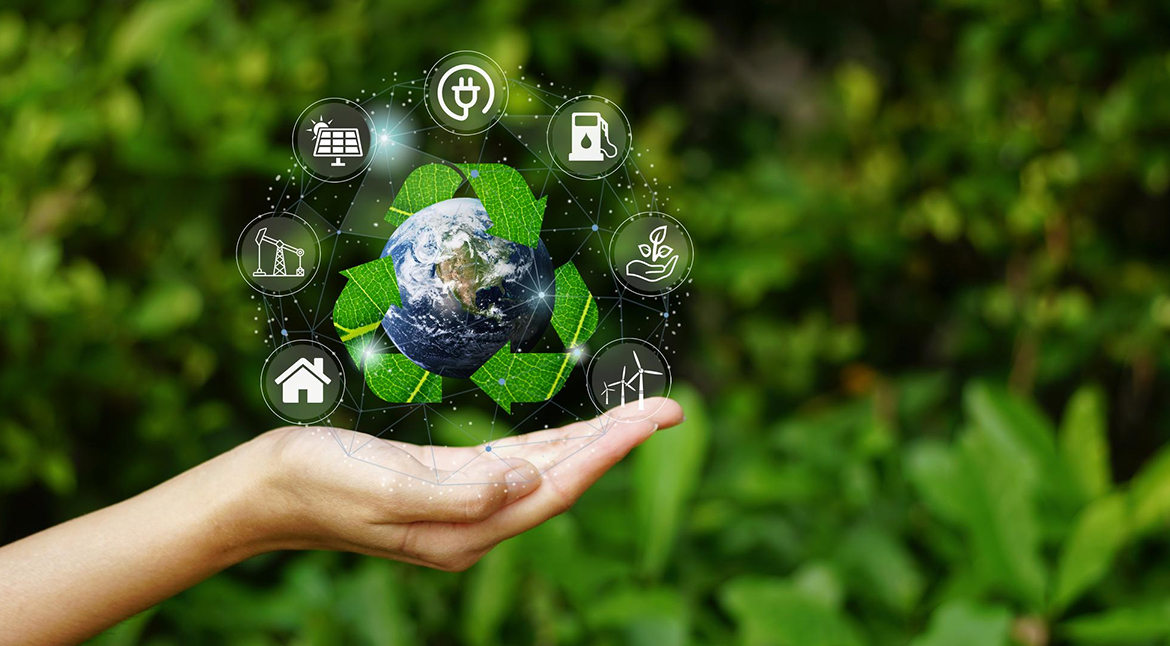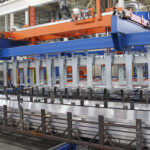Introduction: The Importance of Sustainability in Aluminum Manufacturing
Sustainability has become a critical aspect of modern manufacturing, especially in industries like aluminum extrusion that have significant environmental footprints. Aluminum is widely used across various sectors due to its lightweight, corrosion-resistant, and recyclable properties. However, producing aluminum profiles can be resource-intensive if not managed sustainably.
Surat Aluminium is setting new benchmarks in sustainable aluminum manufacturing by adopting eco-friendly practices that reduce its environmental impact while delivering high-quality aluminum profiles. This blog explores how Surat Aluminium integrates sustainability into its operations, from energy-efficient production techniques to waste reduction initiatives.
Why Sustainability Matters in Aluminum Manufacturing
Aluminum manufacturing involves processes such as mining, refining, and extrusion, which consume substantial energy and generate emissions. Implementing sustainable practices helps manufacturers reduce their carbon footprint, conserve natural resources, and minimize waste.
Key Benefits of Sustainable Aluminum Manufacturing:
- Reduced Carbon Emissions: Lowering greenhouse gas emissions from production processes.
- Energy Efficiency: Reducing energy consumption through advanced technologies.
- Waste Management: Minimizing waste and promoting recycling.
- Resource Conservation: Ensuring responsible use of raw materials.
- Enhanced Reputation: Demonstrating corporate responsibility to customers and stakeholders.
Surat Aluminium’s commitment to sustainability ensures that its manufacturing processes align with global environmental goals.
Energy-Efficient Manufacturing Processes at Surat Aluminium
Energy consumption is one of the primary environmental concerns in aluminum manufacturing. Surat Aluminium addresses this challenge by investing in energy-efficient technologies and practices to reduce its overall energy consumption.
Key Energy-Efficient Practices:
1. Advanced Extrusion Presses:
- Surat Aluminium uses high-capacity extrusion presses with automated temperature control systems to optimize energy usage.
- The 30 MN extrusion press is a prime example of how technology can enhance efficiency while reducing energy consumption.
2. LED Lighting Systems:
- The company has replaced traditional lighting with LED systems, reducing energy consumption in its facilities.
3. Heat Recovery Systems:
- Surat Aluminium implements heat recovery systems to capture and reuse heat generated during production.
- This reduces the need for additional energy inputs and lowers operational costs.
Recycling Initiatives: Closing the Loop
One of the most significant advantages of aluminum is its recyclability. Unlike many other materials, aluminum can be recycled indefinitely without losing its properties. Surat Aluminium leverages this attribute by integrating recycling initiatives into its manufacturing processes.
Key Recycling Practices:
1. Using Recycled Aluminum Billets:
- Surat Aluminium incorporates recycled aluminum billets into its production process, reducing the need for virgin materials.
2. Scrap Management Systems:
- The company has implemented scrap collection and sorting systems to ensure that all production scrap is reused or recycled.
3. Customer Engagement:
- Surat Aluminium encourages its clients to return used aluminum profiles for recycling, promoting a circular economy.
Recycling not only reduces waste but also significantly lowers energy consumption compared to producing aluminum from raw materials.
Waste Reduction Strategies
Minimizing waste is a core aspect of Surat Aluminium’s sustainability efforts. The company employs waste management systems to reduce waste at every stage of production.
Waste Reduction Techniques:
1. Precision Cutting Tools:
- Surat Aluminium uses precision cutting and machining tools to minimize material waste during the extrusion process.
2. Digital Inventory Management:
- Automated inventory systems help the company optimize material usage, reducing overproduction and waste.
3. Zero-Waste Policy:
- Surat Aluminium aims to achieve zero waste to landfill by ensuring that all production waste is either reused, recycled, or responsibly disposed of.
Water Conservation Efforts
Water is another critical resource in aluminum manufacturing. Surat Aluminium recognizes the importance of water conservation and has implemented measures to reduce water usage and recycle water wherever possible.
Water Conservation Practices:
1. Closed-Loop Water Systems:
- The company uses closed-loop water systems to minimize water wastage.
2. Rainwater Harvesting:
- Surat Aluminium has invested in rainwater harvesting systems to supplement its water supply.
3. Wastewater Treatment Plants:
- The company operates wastewater treatment plants to ensure that water discharged from its facilities meets environmental standards.
Sustainable Product Development
In addition to sustainable manufacturing practices, Surat Aluminium focuses on developing eco-friendly products that promote sustainability throughout their lifecycle.
Eco-Friendly Products:
- Lightweight Profiles: Lightweight aluminum profiles reduce fuel consumption in automotive and aerospace applications, contributing to lower carbon emissions.
- Durable Solutions: Long-lasting profiles reduce the need for frequent replacements, conserving resources.
- Solar Panel Frames: Surat Aluminium produces aluminum frames for solar panels, supporting the renewable energy sector.
Employee and Community Engagement
Surat Aluminium understands that achieving sustainability requires collaboration across the entire value chain. The company actively engages employees and the local community in its sustainability efforts.
Engagement Initiatives:
- Employee Training Programs: The company conducts sustainability training programs to educate employees on best practices.
- Community Awareness Campaigns: Surat Aluminium organizes awareness campaigns to promote sustainability within the local community.
- Partnerships with NGOs: The company collaborates with non-governmental organizations to implement community-based sustainability projects.
Certifications and Compliance
Surat Aluminium’s sustainability practices are backed by certifications and compliance with global standards.
Key Certifications:
- ISO 14001: Certification for environmental management systems.
- BIS Certification: Ensuring compliance with Indian quality standards.
- EU and ASTM Standards: Meeting European Union and American Society for Testing and Materials standards.
These certifications demonstrate the company’s commitment to responsible manufacturing and environmental stewardship.
Future Sustainability Goals
Surat Aluminium is continuously working to enhance its sustainability initiatives. The company’s future goals include:
- Achieving Carbon Neutrality: Reducing emissions and offsetting remaining emissions through carbon credits.
- Expanding Recycling Programs: Increasing the use of recycled materials in production.
- Investing in Renewable Energy: Installing solar panels and adopting other renewable energy sources to power its facilities.
Conclusion: Paving the Way for a Sustainable Future
Surat Aluminium’s commitment to sustainable aluminum manufacturing showcases its dedication to reducing environmental impact and promoting responsible practices. By leveraging energy-efficient technologies, recycling initiatives, and waste reduction strategies, the company sets a high standard for sustainability in the aluminum industry.
As Surat Aluminium continues to innovate and expand its sustainability efforts, it paves the way for a greener, more sustainable future in aluminum manufacturing.






